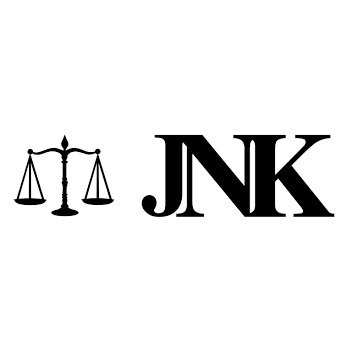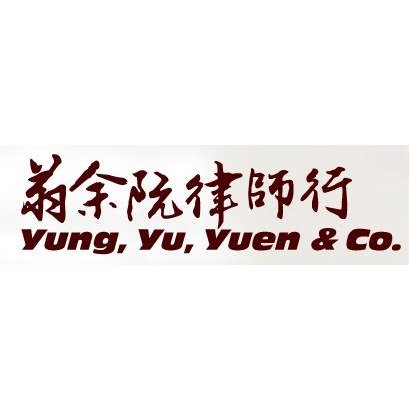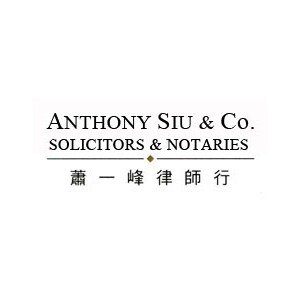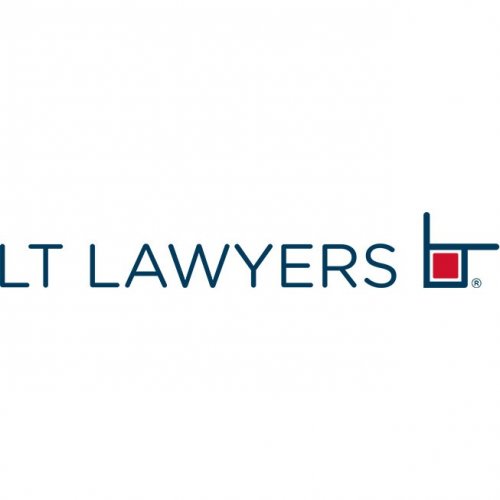Best Funds & Asset Management Lawyers in Hong Kong
Share your needs with us, get contacted by law firms.
Free. Takes 2 min.
Or refine your search by selecting a city:
List of the best lawyers in Hong Kong
About Funds & Asset Management Law in Hong Kong
Funds and asset management is a cornerstone of Hong Kong’s status as an international financial hub. The sector involves the professional management of investment funds and client assets, ranging from collective investment schemes to discretionary investment portfolios. Hong Kong’s mature regulatory framework and proximity to Mainland China make it a prime location for asset managers and investors, both local and international. The landscape is shaped by a network of laws, rules, and guidelines overseen by regulators such as the Securities and Futures Commission (SFC), ensuring transparency, investor protection, and market integrity.
Why You May Need a Lawyer
There are several situations in which legal advice in funds and asset management becomes essential. You may need a lawyer if you are seeking to set up a fund, launch a collective investment scheme, or obtain a license to provide asset management services in Hong Kong. Lawyers are also invaluable when navigating compliance with local regulations, reviewing or drafting fund documentation, negotiating agreements with investors, or handling disputes and investigations by regulators. Additionally, cross-border transactions, restructuring of funds, or entering the Hong Kong market for the first time are scenarios where professional legal guidance can help mitigate risks and ensure full compliance with the law.
Local Laws Overview
Funds and asset management in Hong Kong are governed by an intricate legal framework primarily laid out in the Securities and Futures Ordinance (SFO), Cap. 571. The SFC is the principal regulator and issues codes and guidelines covering fund authorization, licensing of fund managers, and conduct requirements. Key laws and regulations include:
- The Securities and Futures Ordinance, Cap. 571, which stipulates licensing requirements, permitted investment activities, and codes of conduct for intermediaries
- The Code on Unit Trusts and Mutual Funds, providing guidance on the structure and operation of public funds
- Anti-money laundering and counter-terrorist financing legislation that imposes client onboarding and reporting obligations
- Tax regulations related to profits tax exemption for funds under certain circumstances
- Rules on cross-border fund offerings, for example, through the Mainland-Hong Kong Mutual Recognition of Funds (MRF) scheme
Complying with these regulations is essential to operating legally and safeguarding both investors and the integrity of the financial market.
Frequently Asked Questions
What types of funds can be established in Hong Kong?
Hong Kong allows a range of funds, including unit trusts, mutual funds, open-ended fund companies (OFCs), private equity funds, and hedge funds. Public funds offered to retail investors must be authorized by the SFC, while private funds are usually targeted at professional investors and subject to fewer restrictions.
Who regulates funds and asset managers in Hong Kong?
The main regulatory authority is the Securities and Futures Commission (SFC). The SFC is responsible for authorizing public funds, licensing asset managers, enforcing compliance, and protecting investor interests.
What is required to obtain a fund manager license in Hong Kong?
Fund managers must be licensed by the SFC under the SFO, which requires meeting criteria related to financial resources, personnel qualifications, internal controls, and ongoing compliance obligations. Depending on the business, a firm may need to be licensed for Type 9 (asset management) and possibly other regulated activities.
Are there any initiatives for cross-border funds in Hong Kong?
Yes. The Mainland-Hong Kong Mutual Recognition of Funds (MRF) scheme enables eligible funds to be offered in both Hong Kong and Mainland China. Hong Kong is also part of regional passporting regimes for wider cross-border fund distribution.
What are the key compliance obligations for asset managers?
Asset managers must adhere to codes of conduct, perform regular regulatory filings, maintain proper internal controls, comply with anti-money laundering requirements, and ensure fair treatment of investors. Failure to comply can result in regulatory sanctions.
Are there tax incentives for funds in Hong Kong?
Hong Kong offers tax exemptions on profits derived by qualifying funds, subject to certain conditions. This enhances its attractiveness as a fund domicile, particularly for private funds and offshore investors.
How are disputes involving funds resolved?
Disputes may be resolved through negotiation, mediation, or arbitration. The terms are usually set out in the fund’s governing documents. Regulatory breaches or investor complaints can also be investigated by the SFC.
Can foreign asset managers operate in Hong Kong?
Yes. Foreign asset managers can establish local entities or operate on a cross-border basis, subject to licensing and compliance with Hong Kong regulations. Local legal advice is recommended to navigate these requirements.
What is the Open-ended Fund Company (OFC) regime?
OFC is a corporate fund structure introduced to provide greater flexibility for fund managers and investors in Hong Kong. OFCs can be publicly offered or privately offered and benefit from segregated sub-funds and simplified regulatory administration.
What are the key steps in setting up a fund in Hong Kong?
The process involves selecting the appropriate fund structure, preparing offering documents, securing SFC authorization if required, appointing a fund manager and trustee or custodian, ensuring compliance with legal and tax obligations, and registering with relevant authorities.
Additional Resources
For further information and support about funds and asset management in Hong Kong, consider referring to:
- Securities and Futures Commission (SFC)
- Hong Kong Monetary Authority (HKMA)
- Financial Services and the Treasury Bureau (FSTB)
- Hong Kong Investment Funds Association (HKIFA)
- Official government websites providing access to laws and regulations, such as the Hong Kong e-Legislation portal
- Industry associations and chambers of commerce focused on asset management
Next Steps
If you require legal assistance in funds and asset management in Hong Kong, begin by defining your needs and gathering basic information about your proposed activities or issues. Seek out law firms or lawyers with specialist experience in funds and asset management law. Schedule a consultation to discuss your situation and understand the scope of services and fees. Make sure to check the credentials and track record of your legal adviser, and always clarify any points you do not understand. Solid legal advice will not only ensure compliance but also protect your interests as you navigate Hong Kong’s dynamic asset management landscape.
Lawzana helps you find the best lawyers and law firms in Hong Kong through a curated and pre-screened list of qualified legal professionals. Our platform offers rankings and detailed profiles of attorneys and law firms, allowing you to compare based on practice areas, including Funds & Asset Management, experience, and client feedback.
Each profile includes a description of the firm's areas of practice, client reviews, team members and partners, year of establishment, spoken languages, office locations, contact information, social media presence, and any published articles or resources. Most firms on our platform speak English and are experienced in both local and international legal matters.
Get a quote from top-rated law firms in Hong Kong — quickly, securely, and without unnecessary hassle.
Disclaimer:
The information provided on this page is for general informational purposes only and does not constitute legal advice. While we strive to ensure the accuracy and relevance of the content, legal information may change over time, and interpretations of the law can vary. You should always consult with a qualified legal professional for advice specific to your situation.
We disclaim all liability for actions taken or not taken based on the content of this page. If you believe any information is incorrect or outdated, please contact us, and we will review and update it where appropriate.
Browse funds & asset management law firms by city in Hong Kong
Refine your search by selecting a city.















